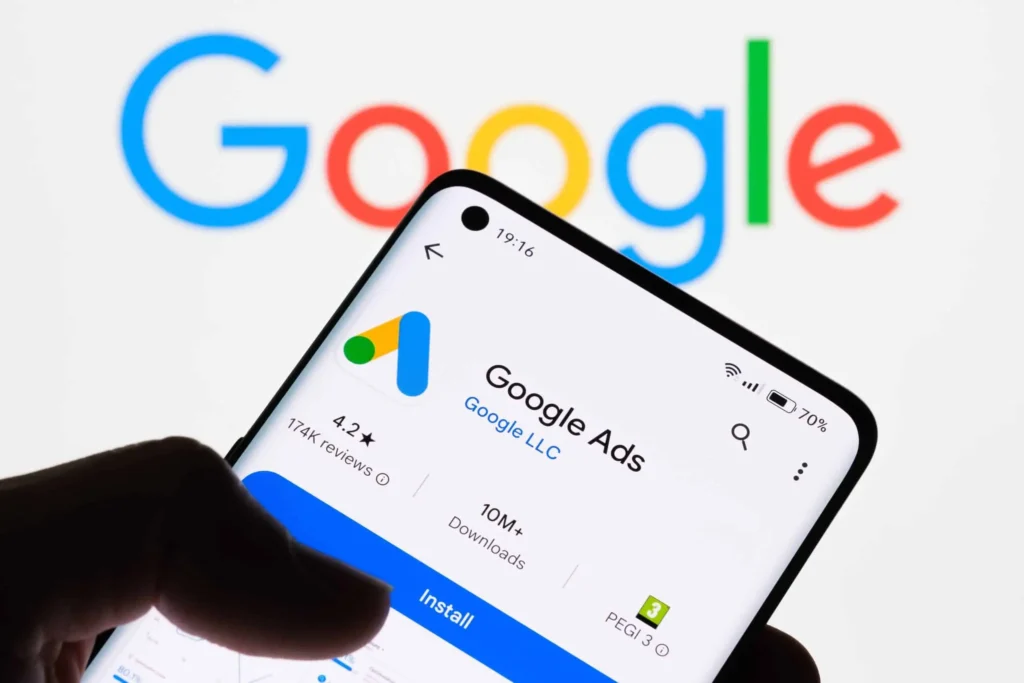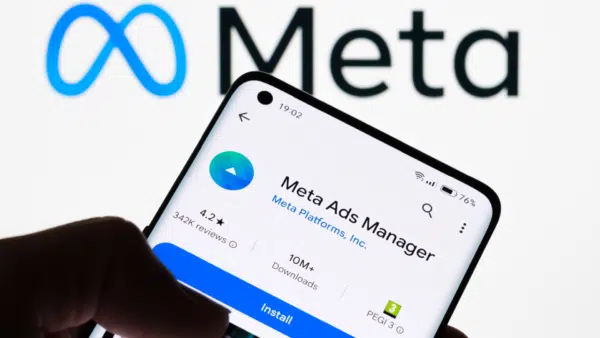
Table of Contents
Introduction
First, let’s understand what digital ads are to better grasp Google Ads vs Meta Ads. Digital ads are online advertisements that businesses use to promote their products or services. Unlike traditional advertising such as TV or print, digital ads appear on social media, search engines, and mobile apps. They are designed to reach a targeted audience, making them highly efficient, measurable, and cost-effective.
If you’re new to what is digital marketing business, it simply means using online channels and strategies to advertise, attract, and convert customers through platforms like Google Ads and Meta Ads.
In the world of digital advertising, there are two main categories: Google Ads and Meta Ads. In this blog, we will explore which one is better for your business and which platform can provide the best ROI.
Google ads : Overview

Types of Google Ads
1. Search ad:
These ads appear when users search for keywords that match your targeted intent. In other words, they reach users who are actively looking for the products or services you offer. When comparing Google Ads vs Meta Ads, search ads are highly effective for capturing high-intent customers
2. Display Ads:
These are visual banner ads shown on websites within Google’s Display Network. They are great for brand awareness and reaching audiences across the internet.
3. Shopping Ads:
Specifically for e-commerce, these ads showcase products with im ages, prices, and store names directly in Google search results. This is one major difference seen when analyzing Google Ads vs Meta Ads platforms.
4. Video Ads (YouTube):
These are ads displayed on YouTube videos or YouTube search results, perfect for engaging users with visual content and storytelling.
Advantages of Google Ads:
High Intent Targeting:
Google Ads allows you to reach users who are already searching for what you are providing, so there is a high chance to convert leads into conversions. When comparing Google Ads vs Meta Ads, Google often performs better for high-intent audiences.
Wide Reach:
Since Google is the most used search engine globally, your ads can reach millions of potential customers across various networks like Search, Display, and YouTube. This wide reach is a huge advantage when looking at Google Ads vs Meta Ads performance.
Measurable Performance:
Everything can be tracked from clicks to conversions. This helps you figure out your performance and optimize campaigns for better results. One of the key advantages in the Google Ads vs Meta Ads comparison is Google’s detailed analytics and reporting tools.
Flexible Budgeting:
You can start with any budget, set daily limits, and pay only when someone clicks on your ad. This makes Google Ads vs Meta Ads suitable for all business sizes.
Quick Results:
SEO takes so much time to rank on the first page, but Google Ads can bring instant visibility and traffic to your website once the campaign goes live.
Advanced Targeting Options:
You can target users based on keywords, demographics, location, device, and even time of day, ensuring your ad reaches the right audience. This precise targeting is a major factor that sets Google Ads vs Meta Ads apart.
Disadvantages of Google Ads:
High Competition and Cost:
From my experience, I’ve noticed that a large number of advertisers tend to bid on the same keywords, which in turn can cause the base price of that keyword to inflate; also, it seems that when comparing Google Ads to Meta Ads, Google tends to require more money to outrank other advertisers.
Requires Constant Optimization:
Without optimization, you will successfully lose your money and automatically make lower returns. Google ads always need monitoring, adjustment, and testing; without it, you will lose your money. his is one challenge marketers face while managing Google Ads vs Meta Ads campaigns.
Click Fraud Risk:
Sometimes, to increase your cost, competitors may click on your ads without giving you any leads or conversions. Yes, you can also do this to your competitors
Short-Term Results:
When you cease to run ads, your traffic and leads cease immediately as well. In contrast to organic strategies, Google Ads will not grant long-term exposure without continued spending. This short-term nature makes Google Ads vs Meta Ads comparison interesting for budget planning.
Ad Fatigue:
When the same ad creatives or keywords are used repeatedly, at some point, users may begin to ignore them, which can reduce the overall performance of your ads over time.
Meta Ads : Overview

Meta Ads is an advertising platform provided by Meta that allows businesses to promote their products or services across Facebook, Instagram, Messenger, and the Audience Network. Many businesses use both platforms, so understanding Google Ads vs Meta Ads helps in choosing the right strategy
Types of Meta Ads:
1. Image Ads:
In image ads, we use a single and effective image that attracts a consumer with a powerful CTA button. Image ads are best used for awareness or promoting specific products or services
2. Video Ads
Video ads are usually a more attractive use for grabbing attention and telling a story. Video ads can appear in feeds, stories, or reels, making them ideal for engagement and showcasing your brand personality.
3. Carousel Ads:
Carousel Ads allow users to put multiple images and videos in a single video. Each ad can have its own link and different context, which makes them perfect for showing different products or features.
4. Story Ads:
These ads are displayed between two stories on Instagram or Facebook. These full-screen ads feel more natural and engaging, helping brands connect with audiences in a creative way
5. Reel ads
Ads that you see in the reel section of Instagram or Facebook are reel ads, targeting users who enjoy short-form video content. It is great for boosting visibility and engagement.
Advantages of Meta Ads:
1. Highly Visual, Engaging Experience:
Meta ads are highly visual, which means that they may use images, videos, and carousels to get the attention of the social media user, as they scroll down their feed. Overall, this mix of so many visual components generally helps the storytelling aspect and brand engagement, versus ads on Google Ads vs Meta, and usually gets better performance.
2. Precise Audience Targeting:
Meta Ads provides the option for you to target specific demographics, interests, behaviors, and even custom audience targeting, ultimately allowing your advertising budget to reach your most relevant users, and more accurately.
3. Cost-Effective Advertising:
Meta Ads typically cost less than Google Ads. This pricing makes the option ideal for small businesses looking to communicate value at a less robust investment. You can also expect to generate value in awareness and engagement for your business through Meta Ads, especially when comparing Google Ads vs Meta Ads.
4. Strong Retargeting:
Meta Ads are a great way to retarget people who have culled through your website, social media, and/or viewed your previous ads. Each of these interactions builds a touch point with the user,r and your probability of a direct or indirect conversion increases.
5. High Engagement Rate:
The users on Facebook and Instagram often engage or interact by liking, commenting or sharing; this leads to ad spend efficiency while compounding trust and brand recall.
6. Variety of Ad Types:
Meta ads have a variety of ad types to choose from; from Stories, Reels, and Carousels, you have the creative ability to customize your campaigns for your goals appropriately. This versatility often becomes a key deciding factor in Google Ads vs Meta Ads decisions.
A Detailed Comparison: Google Ads vs Meta Ads
| Factor | Google Ads | Meta Ads |
| Platform Type | Search-based advertising platform that targets users who are actively searching for products or brands. In the Google Ads vs Meta Ads comparison, Google focuses on search intent. | Social media-based advertising platform that targets users based on interests, biology, and behavior.. |
| User Intent | User engagement is high as users already have an intent to purchase or take action | Engagement is moderate to low; users may not be intending to purchase, but you can motivate action through visual mediums. |
| Ad Placement | Google Search, YouTube, Google Display Network. | Facebook, Instagram, Messenger, Audience Network. |
| Targeting Approach | Keyword targeting focused on search intent. | Audience targeting focused on interest, behavior, and demographics |
| Ad Formats | Text and shopping spots, display, and video ads. | Image, Video, Carousel, Story, and Reel Ads. |
| Cost | Typically higher due to intense competition for keywords | Generally lower costs, particularly for brand awareness campaigns |
| Goal Suitability | Ideal for lead generation, conversions, and visibility in search. | Ideal for brand brand building, engagement, and retargeting. |
| Performance Tracking | Provides higher-end analytics, conversion tracking, and keyword insights | Provides good audience insights, engagement, and retargeting data for these objectives. |
| Result Speed | Offers immediate visibility as soon as campaigns launch. | May take longer to deliver results, but builds a greater awareness of the brand— a key distinction in Google Ads vs Meta Ads. |
| Ad Lifespan | Stops immediately when campaign stops | Can build engagement and awareness from the previous campaign even after the campaign stops running. |
| Visual Appeal | Limited visuals and relies on text or search based advertising. | High visual appeal because of images and videos, plus interactive formats. |
| Best For | Businesses targeting active buyers. | Brands looking to generate awareness, engagement, and social proof. |
Factors to Consider Before Choosing a Platform
1. Business Goals:
If you are looking to generate immediate leads or sales from people who are already looking for your products, Google Ads is likely going to be the better option for you. If you are looking to create brand awareness or develop a longer-lasting engagement, Meta Ads may be the better method. The choice between Google Ads vs Meta Ads depends largely on what you want to achieve.
2. Target Audience:
Think of where your potential customers will be on the time, searching for products or services online, then Google makes sense. But if they’re more active on social media, Google Ads vs Meta Ads decisions tilt in favor of Meta Ads.
3. Budget and Cost-Effectiveness:
Google Ads might be more costly due to the competition on keywords, whereas Meta Ads are generally more cost-effective for promotion of awareness. Choose a platform that works for you by understanding your spending limit and expectations around ROI.
4. Ad Format Preference:
Do you prefer to use these ads for visual storytelling using videos and images or text-based ads that stand in a search? The format is important in picking a platform that should match your brand messaging and audience interactions.
5. Data and Analytics:
Both platforms offer detailed insights, but Google Ads provides deeper analytics on search intent and conversions, whereas Meta Ads focuses more on engagement and user behavior data.
Can You Use Both?
1. Benefits of Integrating Google Ads with Meta Ads
This section covers the reasons why the combination of the two companies will produce higher yields than either company would as a standalone.
You can state factors like:
Broader Reach:
You can target both search-based (Google) audience and interest-based (Meta) audience
Better Conversion Ladder:
Meta Ads attract and cultivate leads and Google Ads converts leads.
Cross-Platform Retargeting:
Advertise to users who interacted with your brand on one platform through the other platform
Better ROI:
Even when spending on Google Ads vs Meta Ads, overall spending should equal a better hired advertising efficiency.
1. What is the main difference between Google Ads and Meta Ads?
The main difference in Google Ads vs Meta Ads lies in user intent. Google Ads focus on people actively searching for a product or service, while Meta Ads targets on reaching audiences through social media interests and behaviors.
2. Which platform is better for small businesses?
When comparing Google Ads vs Meta Ads, small businesses benefit differently. Google Ads works well for lead generation and high-intent searches, while Meta Ads is ideal for building brand awareness and engagement.
3. Can I run Google Ads and Meta Ads together?
Yes! Using Google Ads vs Meta Ads together can create a powerful full-funnel strategy. You can use Meta Ads for awareness and Google Ads for conversions which directly helping you to maximize reach and ROI.
4. Which is more cost-effective: Google Ads or Meta Ads?
Cost-effectiveness in Google Ads vs Meta Ads depends on your goals. Google Ads may have higher CPC but stronger intent, while Meta Ads usually offer cheaper clicks but need good audience targeting to convert.
5. How do I decide between Google Ads and Meta Ads?
When choosing between Google Ads vs Meta Ads, consider your business goals, audience behavior, and budget. If you want instant leads then i would recommend you to choose Google Ads. If your goal is brand awareness and engagement you should go with Meta Ads.
